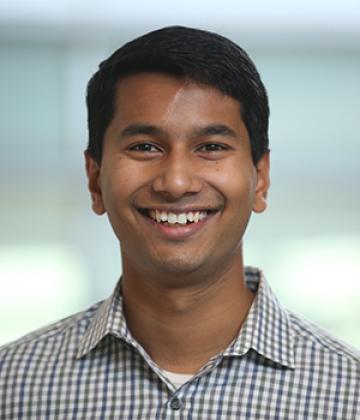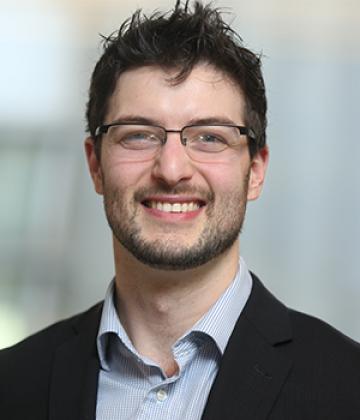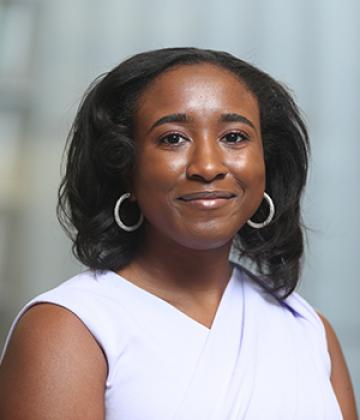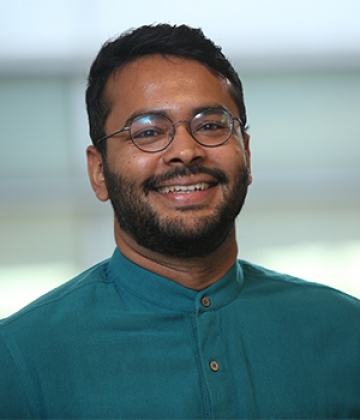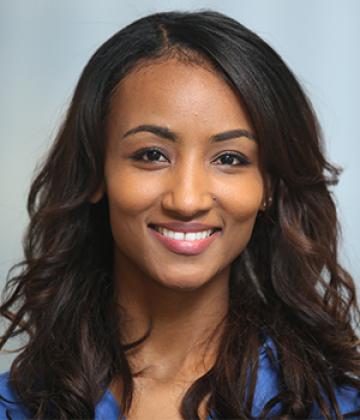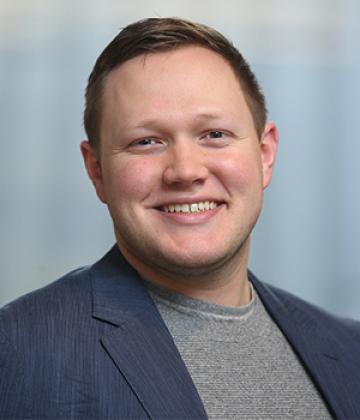Meet the 2019–2020 Davis Polk Leadership Fellows
The fellows are pursuing projects that are as innovative as they are relevant to society and the world—from protecting financially vulnerable consumers from exploitation and predatory practices to educating a new generation of LGBTQ lawyers in India.
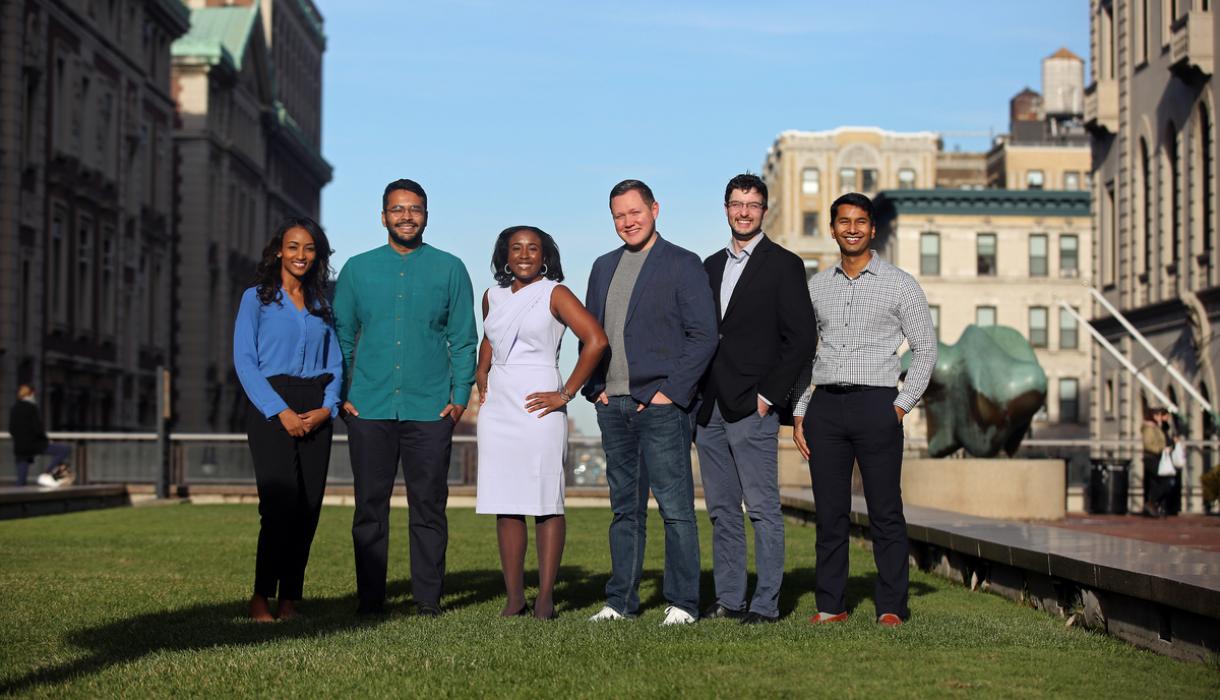
Now in its second year, the Davis Polk Leadership Fellowship program provides leadership training, mentorship, and a stipend to six students pursuing projects and activities designed to have a positive impact on the Law School, the legal profession, and the larger community. Throughout the year, fellows develop their projects and receive personalized coaching from faculty, staff, and alumni in areas related to their interests. In turn, through their projects and their work as a group, the fellows support other students and cultivate a culture of leadership at the Law School and in the wider community. Fellowships are awarded to one or two students from each J.D. class plus one LL.M. student.
This year’s fellows are honing in on issues that hit close to home as well as some that have global implications. “The 2019–2020 fellows are a remarkable group,” says Susan Sturm, the George M. Jaffin Professor of Law and Social Responsibility. “They have a deep personal connection to the issues they are pursuing with their projects and have a proven track record of advancing this work. They are harnessing their passion and knowledge to concrete and timely projects that are already having an impact.”
The fellowship is just one element of Columbia Law School’s cross-disciplinary Davis Polk Leadership Initiative, made possible through the generous and ongoing support of global law firm Davis Polk & Wardwell LLP. In addition to the fellowship program, the initiative includes innovative curricular offerings, a groundbreaking interactive course called Lawyer Leadership: Leading Self, Leading Others, Leading Change, events and programming, and community-based leadership development opportunities for students, faculty, and staff. It is chaired by Sturm, Michael Gerrard, the Andrew Sabin Professor of Professional Practice, and Petal Modeste, associate dean of Student Affairs Administration.
Learn more about each of this year’s fellows below and on the program’s website:
Karna Adam '22
The goal: Make data analysis accessible for community organizations and nonprofits.
The inspiration: Better data analysis, says Karna Adam, makes for better lawyers. It’s a belief he developed during his time as an analyst at Cornerstone Research, one of the world’s leading litigation consulting firms. “At Cornerstone, I learned how essential empirical analysis could be to winning key arguments in litigation matters,” says Adam. The same empirical tools, he says, could be used to represent underserved and under-resourced clients. However, many community groups cannot access the data or lack the legal and analytical expertise necessary to interpret it.
The project: Adam aims to work with a coalition of law students, faculty, and practitioners to educate legal aid organizations on how to leverage empirical analysis in housing court, assist student organizations dedicated to providing free data analysis for community organizations, and partner with computer science professors to build out novel ways of collecting and analyzing data. This kind of support, he says, has the potential to make a dramatic difference in the lives of many people. “I’ve learned that an important form of leadership involves being willing to take the first step into unknown territory and lead the way.”
David Berman CC ’15, LAW ’21
The goal: Protect financially vulnerable consumers from exploitation and predatory practices.
The inspiration: While studying economics at Columbia College, David Berman worked as an intern at the U.S. Attorney’s Office for the Southern District of New York and gained a deep understanding of how consumers can be exploited. “Listening to recordings of debt collectors threatening low-income borrowers, I realized that . . . there are victims—average, working-class people—who lose their financial security and lack the power to fight back against exploitative corporations,” he says. “I came to law school to become an advocate for the financially vulnerable.”
The project: Berman aims to get Law School students involved in consumer justice litigation. “I plan to partner with a small, community-based organization where Columbia Law students can provide legal help and maximize community impact.” In addition to forming a student group dedicated to consumer protection, he will work with faculty to build a program dedicated to the needs of underserved communities.
Kori Cooper ’21
The goal: Amplify black voices and perspectives on China-related policy issues.
The inspiration: As an undergraduate student at Northwestern University, Kori Cooper received a fellowship to analyze African American stereotypes in China and served as a global operations intern, young ambassador, and teaching lead at the Carnegie-Tsinghua Center for Global Policy in Beijing. Her experiences made her realize that “there is a lack of representation of viewpoints from members of the African diaspora among China experts, media coverage, or on relevant discussion panels.” That imbalance, says Cooper, has consequences. “Pre-existing cultural prejudices . . . are difficult to overcome, [and] there has been little research examining the effect this has had on how we discuss global policy.”
The project: Through her project, Black Voices on Greater China, Cooper aims to facilitate discussions on a range of China-related topics that feature black creators, scholars, and professionals. Ultimately, she hopes those efforts will lead to wider discourse on how black people have engaged with China historically and how they engage with it today as a rising global superpower, further opportunities to reflect the perspectives of persons of black heritage, and help others gain a more holistic understanding of cultures different from their own.
Mihir Samson ’20 LL.M.
The goal: Foster a new generation of LGBTQ lawyers in India.
The inspiration: Growing up in India, Mihir Samson faced discrimination because of his sexuality. He became a lawyer to represent vulnerable populations, and in 2017, founded a law firm in New Delhi that provides pro bono services to the LGBTQ community. “But I found myself relying on instinct rather than training in any leadership roles,” he says. Now, he’s developing those leadership skills and exploring more ways to cultivate a diverse bar in the courts of India. “The fellowship provides formal mentorship and training, which will enable me to be a more effective leader.”
The project: Samson’s plans to establish a program to enable LGBTQ-identifying law students from India to visit Columbia University and learn how LGBTQ organizations on campus and in New York City have helped make the legal field more inclusive. “There is no doubt that lawyers will play a very important role in what happens next in the LGBTQ movement in India,” says Samson, noting that he wants to build on the momentum generated from the recent landmark decision of the Indian Supreme Court decriminalizing adult same-sex relationships. “We have an amazingly vibrant and diverse LGBTQ community in India. Unfortunately, this is not represented at the bar. To address this, the next generation of queer lawyers has to be trained and supported.”
Sudi Tasissa ’20
The goal: Empower disadvantaged students and those from underrepresented groups by training them in the norms of professionalism.
The inspiration: Sudi Tasissa is passionate about helping students from underrepresented groups achieve big aspirations. To do so, she focuses on an important skill set that is rarely covered in college curriculums—navigating the norms of professionalism. “Professional success requires not only capability and skill to do the job but also the ability to understand unwritten codes of conduct,” she says. “Students from middle-class or wealthy families indirectly learn these valuable lessons from their parents or community members.” The expectation that professionals will adhere to these unspoken set of norms can present obstacles for students from disadvantaged backgrounds. “A lack of understanding of such norms could distract a person from their work, reduce their sense of belonging, and hinder their ability to have a successful career or leadership roles,” she says.
The project: Tasissa will create programs to teach disadvantaged youth the professional etiquette skills necessary to thrive in the legal industry. “The program will also help companies recruit and retain capable diverse professionals,” she adds. “When students become confident in their ability to navigate professional settings, they can become self-assured in their ability to thrive in their given career.”
Tanner Zumwalt ’21
The goal: Alleviate the financial burden of childcare for student-parents.
The inspiration: “Even though my wife and I never second-guessed our decision to return to school after military service, we were woefully unprepared for the administrative challenges and unexpected financial burdens that awaited us,” says Tanner Zumwalt. That personal experience helped Zumwalt realize that the financial rights and obligations of student-parents should be a matter of urgent concern.
The solution: Zumwalt plans to start inspiring change by shedding light on the challenges faced by student-parents at Columbia and working with the community to address the high costs of childcare for them. In addition to preparing a comprehensive report on childcare at Columbia, Tanner wants to find ways to provide clearer communication to admitted student-parents and better connect them with resources. Ultimately, he hopes Columbia will serve as a model for other universities. “I firmly believe that [achieving these goals is] necessary to fulfill our commitment to diversity and set the right tone for the legal profession,” he says.
2019–2020 Innovation Grant Recipients
In addition to the fellowship, Law School students and staff members can also apply for Innovation Grants to support their community-oriented projects. This year’s recipients include:
- Urvi Agarwal ’20 LL.M.: Coding for Lawyers
- Pamela Escano, Diana Pedi, Becca Shepler (Law School student affairs administrators): New and Rising Professionals in Higher Education
- Susanna (Suz) Kroeber ’21: Student-Attorney Tax Preparation Clinic
- Amira Perryman ’21: 1619 Project at Columbia University
- Elsa Wyllie ’20 LL.M.: Carbon Neutral Columbia
- Anita Yandle ’21: Abortion Decriminalization Project
